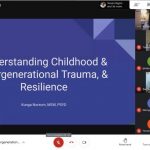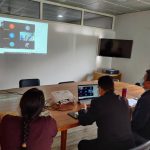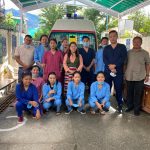COMMUNITY HEALTH IMPROVEMENT
Many Tibetans in India and Nepal are unable to access affordable quality health care, and health prevention and disease control initiatives often fail to reach communities with high levels of effectiveness. The Tuberculosis (TB) incidence rate of Tibetans in South Asia is among the highest in the world, and recent studies show that Hepatitis B prevalence is equally high. Many women and children do not have access to maternal and child health services, leaving them vulnerable to preventable diseases and death. Lack of awareness about diseases and good preventive practices contributes to poor treatment adherence and high prevalence rates of communicable diseases such as TB and Hepatitis B, as well as non- communicable diseases such as diabetes and stomach cancer, and the majority of Tibetans remain uninsured for emergency secondary and tertiary care.
Since 1981 the CTA Department of Health (DOH) network of 50 primary health centers, hospitals, and rural clinics has provided primary health care, preventive health services, and referral services for Tibetans living in settlements across India and Nepal.
In 2015, the DOH received additional United States government funding to address community health challenges more effectively and sustainably. The funds have helped build DOH capacity to provide universal access to affordable quality health care and financial protection against impoverishing illness, in particular those that impact maternal, child, and TB related mortality. Key strategies are strengthening the Tibetan Medicare System (TMS); improving the quality of TB care and reproductive, maternal, newborn, child, and adolescent health (RMNCHA) services; social and behavior change communication (SBCC); and improving utility and operations of the DOH Health Information System (HIS). To increase long-term financial sustainability DOH is designing an improved integrated health financing model based on a comprehensive assessment of the DOH health system.
In 2016 a comprehensive diagnostic assessment was completed on the DOH health system as a whole, including separate studies of RMNCHA services, TB care, SBCC practices, HIS operations, health workforce capacity, and the existing health financing model. A five- year road map of interlinked strategies in each area of study was developed and is being currently implemented.






